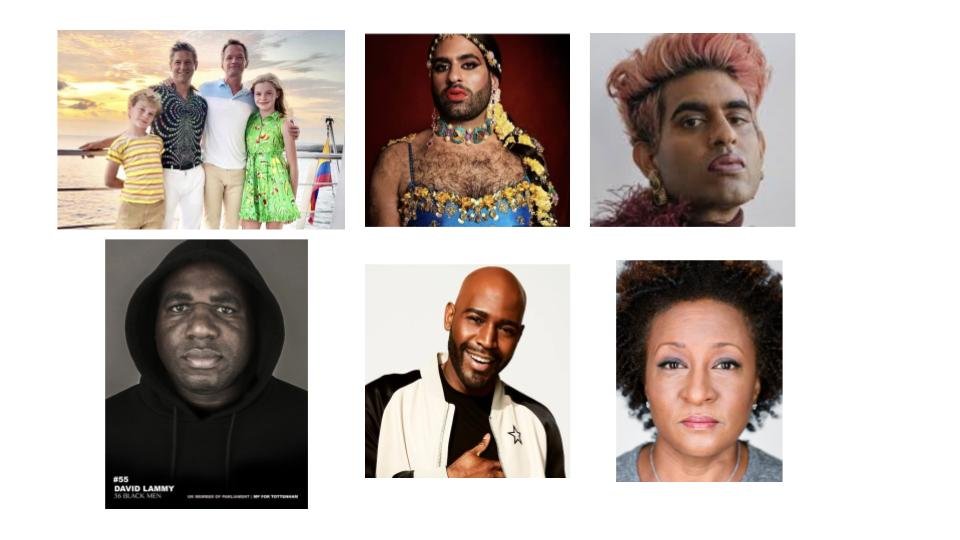Expanding Our We
We are working with What It Takes To Heal: How Transforming Ourselves Can Change The World, by Prentis Hemphill. The following are a series of quotes and reflections from the book.
“The task is to weave a belonging between people who have never belonged to one another or have forgotten what it is to accept and invite. We are already kin, whether we like it or not.
How can we live as though our living depends on one another?
To ensure our survival as a society, we must extend to everyone the safety and care we want for ourselves.
To start the work of belonging is to put aside, in this moment, the stories we tell, not of difference, but of inherent and complete separation.
I choose to redefine humanity on terms bigger than my own reflection or my own comfort.
Who in the end is more human than you or me that we should plead for acceptance into their version of humanity?
I am not just like them and I am human still. Expanding our concept of “we” is not about erasing difference but about redefining human to include all of us for who we really are.”
Who feels more familiar and safe to you? Neil Patrick Harris and family? Alok Vaid-Menon - in picture 1 or 2?
Stereotypes influence who we see as enough “like us” that we can relax. Who feels safe to you?
David Lammy, Member of Parliament UK who was part of the 56 black men in hoodies project.
Karamo Brown, the empathetic therapist on the Queer Eye
Wanda Sykes, the comic and the activist
~~~
Our nervous system requires safety to relax and connect with other people.
We use our experience from the past to predict our safety now and we feel safer with higher certainty. For example, when you come to my daily practice regularly, your nervous system predicts you will have a similar experience and you relax more quickly.
We’re anxious entering an unfamiliar experience or a room of people we don’t know. Our brain replaces knowing with stereotypes in our attempt to predict safety or threat. This is clearly not an accurate basis for assessment.
We look for cues of safety in body language, genuine smiles and engagement. Do we belong?
A double bind: people who are anxious don’t feel as safe to us as people with a more regulated system and fear can escalate just from the other person’s anxiety not from actual threat.
People are more than our neuroception and nervous systems. As we become more reliably regulated, we are able to connect as equals with curiosity and less trepidation.
It is fascinating to look at our own entitlement and hidden concepts of who we think is human. Who do we include and who is not included? We can acknowledge that we are affected by stereotypes and work with broadening our understanding of and connection with people “not like us”.
There is no chance that we can show up for each other if one or both of us is still somehow an object. Dehumanizing another does not make us safer.
“There is almost nothing more profound or more terrifying than the simple act of reaching for each other. There is no real intimacy that does not begin with listening.
Practicing kinship is looking into one another’s faces and admitting that we are familiar and related.
Kinship and allyship is rejecting the fear that there is not enough care for all of us. Who do we care about and care for? Kinship creates the abundance we need.
Embodied Empathy
We retrieve some of our humanness through feeling our own hurt, and only then can we sit with the reality of another’s grief and pain. Empathizing is the embodied act of widening our sphere of care.
Empathy is the capacity to understand and feel what another person is experiencing. It has the power to create a sense of safety for people in their own emotions or experience.
I could have enough curiosity to consider what it meant to them, not just how I might react to it.
It can take a kind of internal safety to be curious, to stay steady as relationship opens itself to us and shows us things we didn’t know.
Empathy is listening with an open chest that allows us to understand.
~~~
Who in the end is more human than you or me that we should plead for acceptance into their version of humanity?
I choose to redefine humanity on terms bigger than my own reflection or my own comfort.
They are not “just like me” and they are human still.
We change because we have surrendered with our bodies to feeling something new, to expanding our capacity to experience a wider range of emotions, to deepen relationships, and to open our awareness.
Stay curious as you explore with others, and consider what it means to them, not just how you react to it.”
Commit to an ongoing practice of open-heartedness and connection. We don’t get to decide for other people what their life should be like and how they should feel and express themselves in the world. We may or may not like them or feel safe with them. That’s different from exiling them from humanity.
Our humanity is a given. Let’s start from there.
Becoming The People podcast: Prentis Hemphill with Kai Cheng Thom

